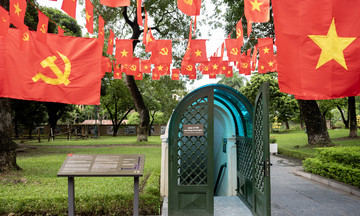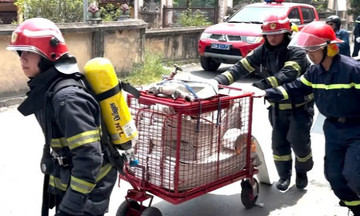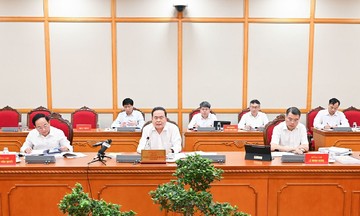In early September, under the gentle sun in My Ngai ward, Riem weeded his nearly 1,000 m2 garden. Young grass is collected for his cows, while older branches are dried and composted. "Plants take nutrients from the soil, so we must return them," he explained.
His garden is strictly chemical-free. Riem composts cow manure, rice straw, and dried grass, combined with beneficial fungi to decompose plant matter and enrich the soil. He also ferments snails and fish into foliar fertilizer, crushes garlic and chili peppers into a pest repellent, and plants flowers to attract beneficial insects.
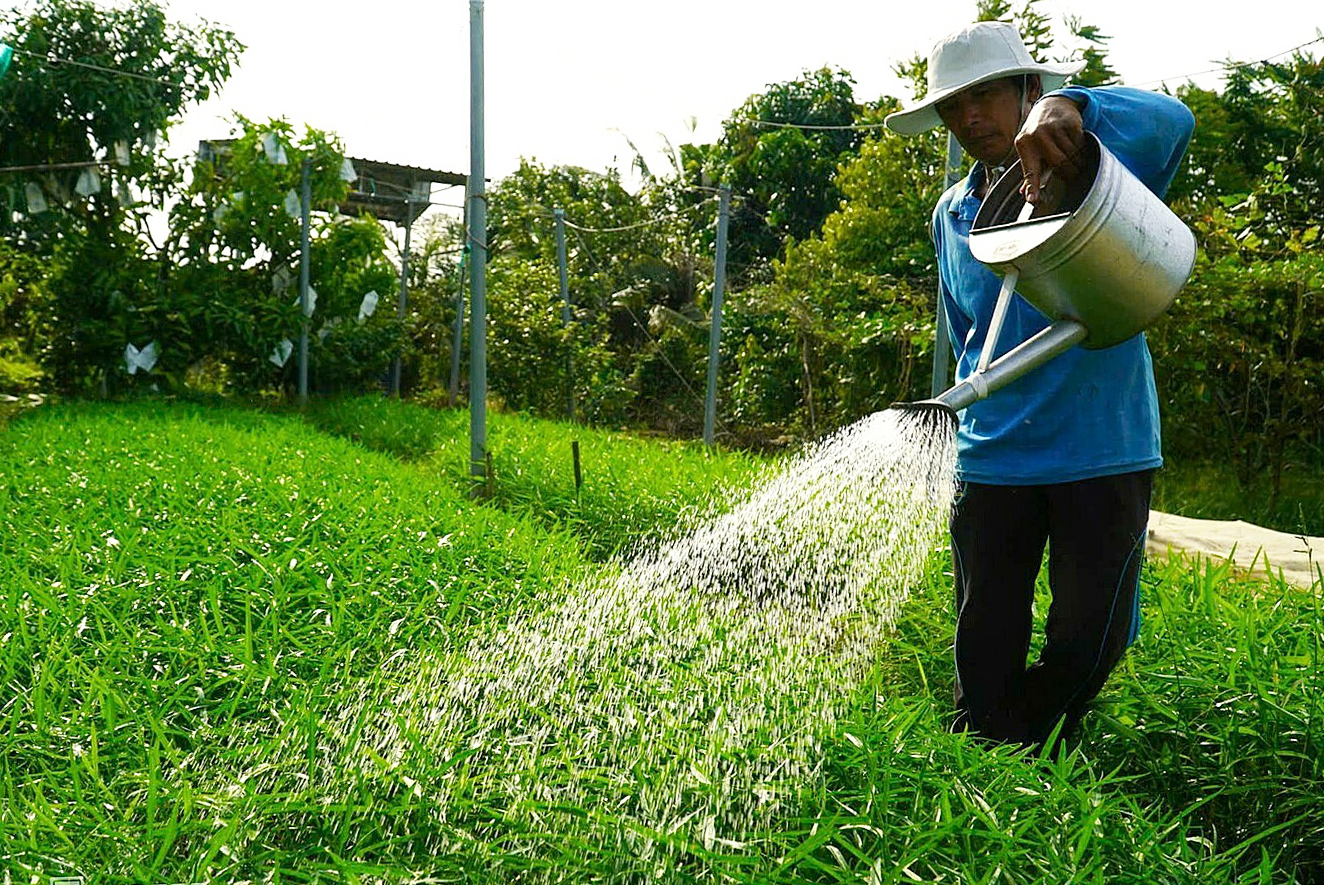 |
Riem tends to his water spinach, one of over 20 types of vegetables he grows. Photo: Ngoc Tai |
Riem tends to his water spinach, one of over 20 types of vegetables he grows. Photo: Ngoc Tai
"When there are few pests, I catch them by hand. For leaf-eating flea beetles, I cover the seedlings with nets to prevent butterflies from laying eggs. This method is very effective," the man in his seventies said.
When he first started organic farming, pests devoured his young crops. His income dropped due to low yields, with his produce fetching the same price as conventionally grown vegetables. Despite his wife's complaints, he persisted, wanting to "produce clean food for everyone."
Recently, thanks to "green markets" organized by the Dong Thap Department of Agriculture and Environment, organic produce commands prices two to three times higher than before. His income is more stable, with profits 20-30% higher than traditional farming. However, not everyone could maintain these practices. Riem's original organic farming group dwindled from three members to one, forcing him to join a group in a neighboring commune.
From individual households, the province has formed groups to monitor, support, and protect brand reputation. Monthly meetings facilitate experience sharing, cross-checking, and the removal of non-compliant gardens. Agricultural officials regularly encourage and monitor processes, ensuring adherence to PGS (Participatory Guarantee System) certification.
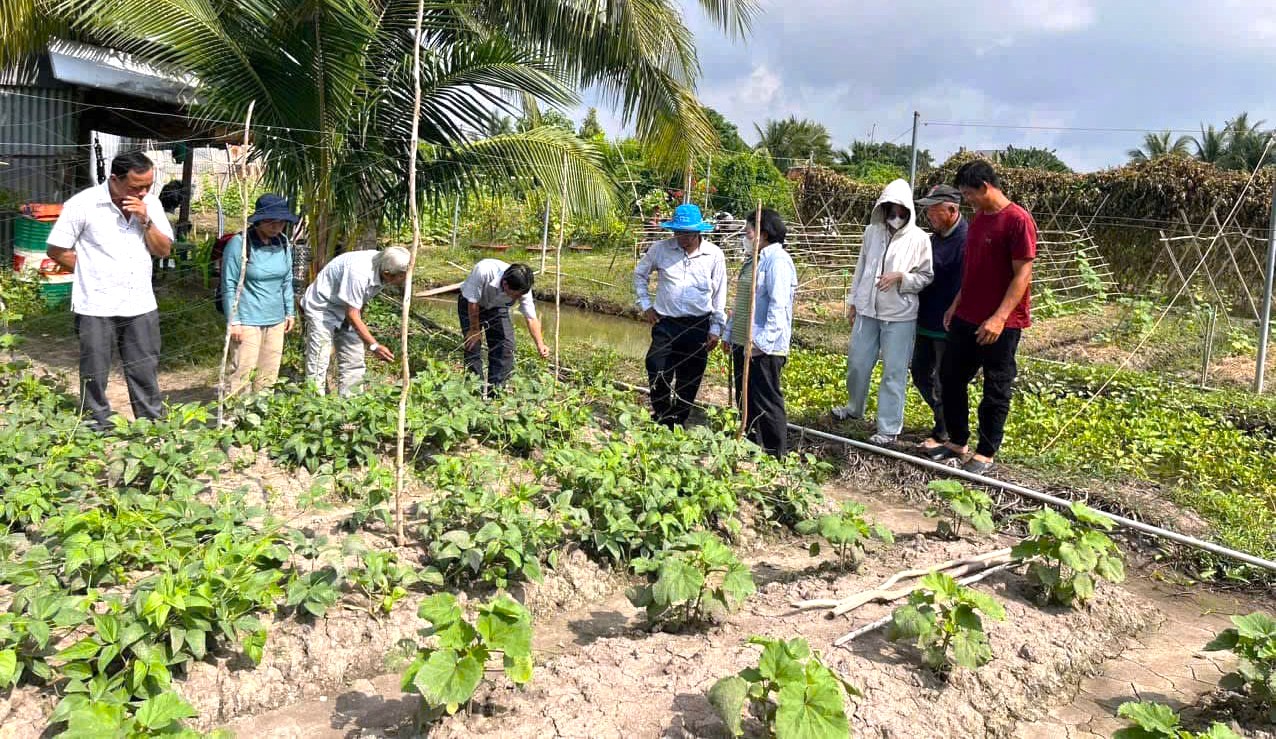 |
A cross-check by members of the organic vegetable production group. Photo: Nguyen Khanh |
A cross-check by members of the organic vegetable production group. Photo: Nguyen Khanh
PGS is a community-based organic certification used in many countries, based on the participation of producers, consumers, and stakeholders. Unlike third-party certification, PGS emphasizes transparency, trust, and community responsibility. In Vietnam, PGS is based on standards issued by the Ministry of Agriculture and Rural Development (now the Ministry of Agriculture and Environment).
Organic practices have extended beyond vegetables to mangoes. In the Cao Lanh mango region, Tran Phu Hau and 11 other farmers formed a cooperative for safe, organic production. They avoid herbicides and unapproved pesticides, reduce chemical fertilizers, and observe pre-harvest intervals.
After two years, only six members achieved certification. The others were disqualified for violations, such as secretly spraying unapproved pesticides. Members regularly conduct "surprise" inspections to protect their collective reputation. "One person's mistake affects the whole group, so we must be strict," Hau said.
Organic mangoes are fragrant, firm, sweet, and have a longer shelf life than mangoes grown with excessive fertilizers and pesticides, which tend to ripen quickly, have a soft texture, and lack flavor. In the first year, a company purchased 17 tons of mangoes (25% of their production) at a price 10,000 VND/kg higher than the market rate for export processing to Japan.
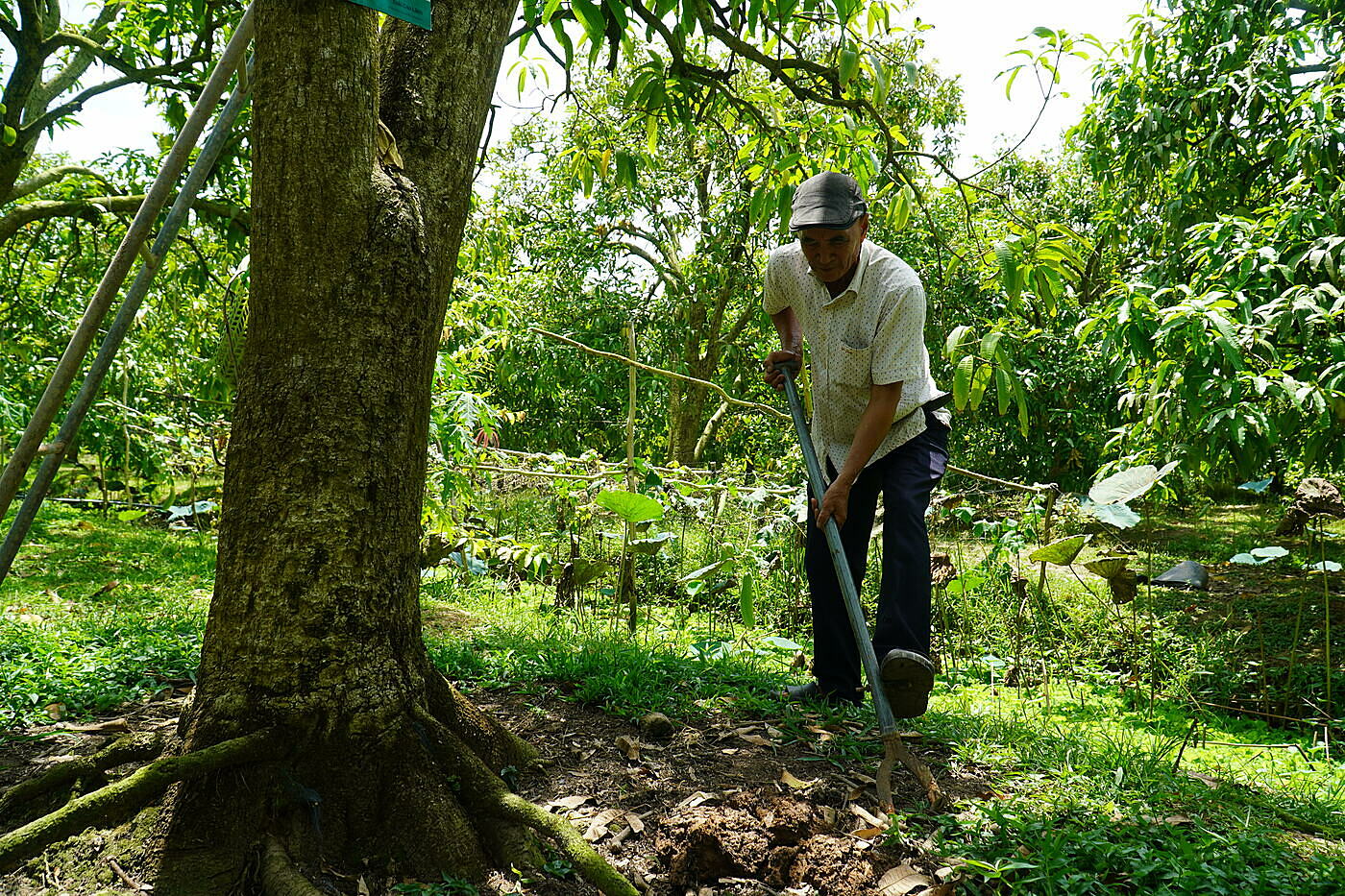 |
After growing mangoes according to PGS standards, Hau checks the soil and finds that the microorganisms have developed strongly, making the soil loose and fertile. Photo: Ngoc Tai |
After growing mangoes according to PGS standards, Hau checks the soil and finds that the microorganisms have developed strongly, making the soil loose and fertile. Photo: Ngoc Tai
Dong Thap currently has 12 PGS-certified organic farming groups with nearly 30 members. They receive support from Seed to Table, a non-governmental organization run by Mayu Ino (Japanese), including model monitoring, market access, and infrastructure investment support.
Organic vegetable gardens have also been introduced in 22 schools, where teachers and students cultivate them as a practical lesson in production processes, labor value, and consumer responsibility.
Le Ha Luan, Director of the Dong Thap Department of Agriculture and Environment, said the province has implemented the PGS model since 2019, providing training, monitoring, and certification. "The organic process is rigorous, requiring passion and perseverance. We aim to maintain the current number of participants, improve quality, and only expand when there are isolated farming areas and stable markets," he said.
Earlier this month, the Department opened a store selling over 50 types of organic fruits and vegetables in Cao Lanh ward, creating additional market opportunities for farmers.
Ngoc Tai




